Fabrizio Freda, President and Chief Executive Officer of the Estee Lauder Companies (NYSE:EL) sold 300,000 shares of the company’s stock worth a total of $30.1 million on Tuesday, August 22nd. In fact, insiders have sold more than $43.8 million worth of stock since June according to Market Beat. The company’s shares last traded at $105.17 as of Wednesday, August 23, approximately 99.5% of its 52 week high. While the stock is near highs, could the recent insider transactions signal a troubling road ahead for shareholders?
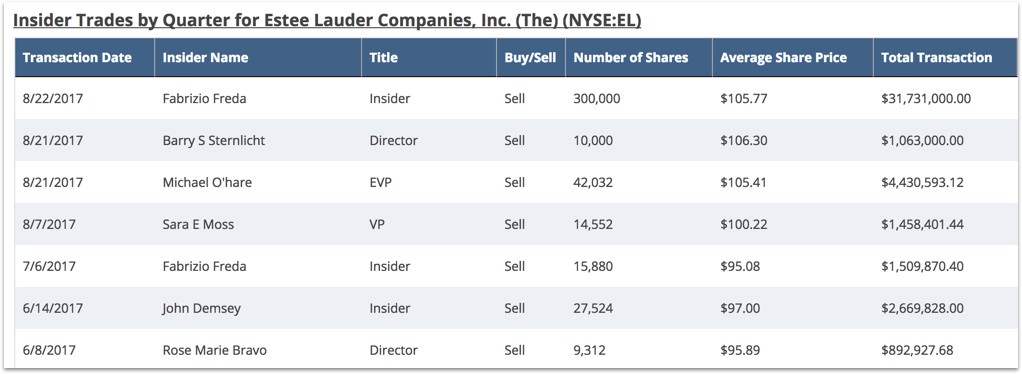
The Estée Lauder Company manufactures and markets skin care, makeup, fragrance, and hair care products worldwide. The company sells its products through department stores, specialty multi-brand retailers, upscale perfumeries, pharmacies, salons, and spas.
Analysts covering the stock often compare the company to a peer group that includes Kimberly-Clark (NYSE: NYSE:KMB), Colgate-Palmolive Company (NYSE: NYSE:CL), Avon Products (NYSE:AVP) and Clorox (NYSE:CLX). Analyzing Estée Lauder’s valuation metrics and ratios provides further insight into why insiders are selling their shares.Potential Reasons Why Insiders Are Selling Shares
We define fundamental metrics and present charts below that may help explain why insiders are selling their shares.
Return on Invested Capital (ROIC) is used to evaluate the ability of a company to create value for all its stakeholders, debt and equity. The company’s ROIC of 14.2% is slightly above AVP (12.6%) and well below KMB (25.0%), CL (36.2%) and CLX (24.6%).
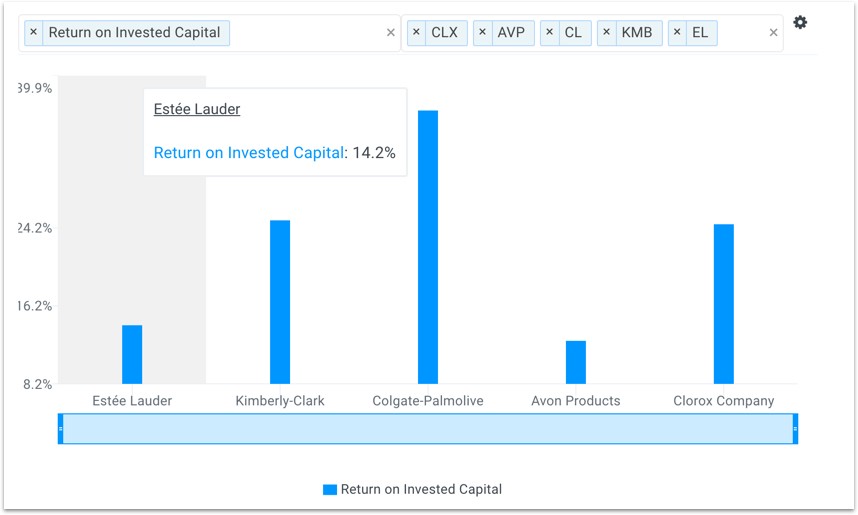
EBITDA margin or Earnings before Interest, Taxes, Depreciation and Amortization margin measures the portion of revenue a company converts to earnings. It is a strong measure of a company’s pricing power and capital efficiency.
Again, Estée Lauder’s EBITDA margin of 17.7% is only above comparable company AVP (8.0%) and below KMB (22.3%), CL (28.3%) and CLX (20.9%).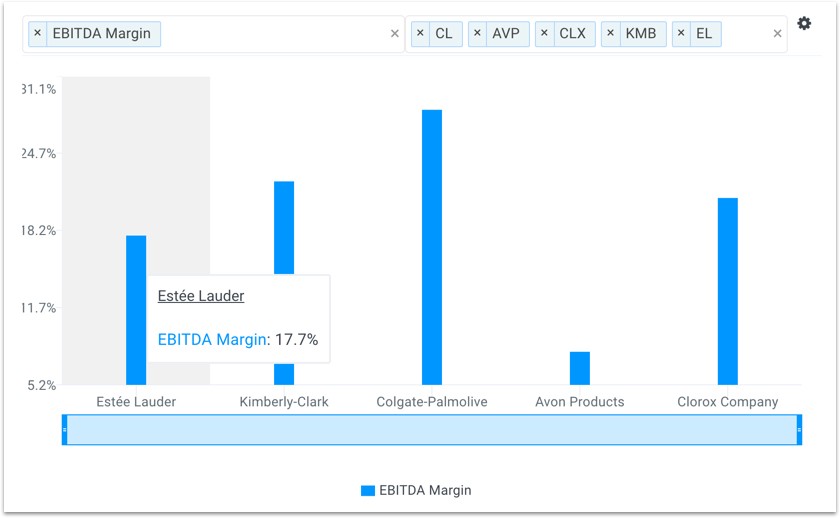
EBITDA Multiple is calculated by dividing Enterprise Value by EBITDA and is often used to benchmark the fair market value of a company. Its key benefit over the P/E Multiple is that it’s capital structure-neutral, and, therefore, better at comparing companies with different levels of debt.
All else equal, companies with higher returns and EBITDA margins command higher valuation multiples and vice versa. However, this doesn’t appear to be the case with Estée Lauder. The company’s LTM EBITDA multiple of 19.5x is above all of its selected comparable public companies: KMB (12.2x), CL (15.7x), AVP (6.4x) and CLX (16.0x). Similarly, its forward EBITDA multiple of 17.6x is also above the entire peer group: KMB (12.1x), CL (15.1x), AVP (5.7x) and CLX (15.4x)
.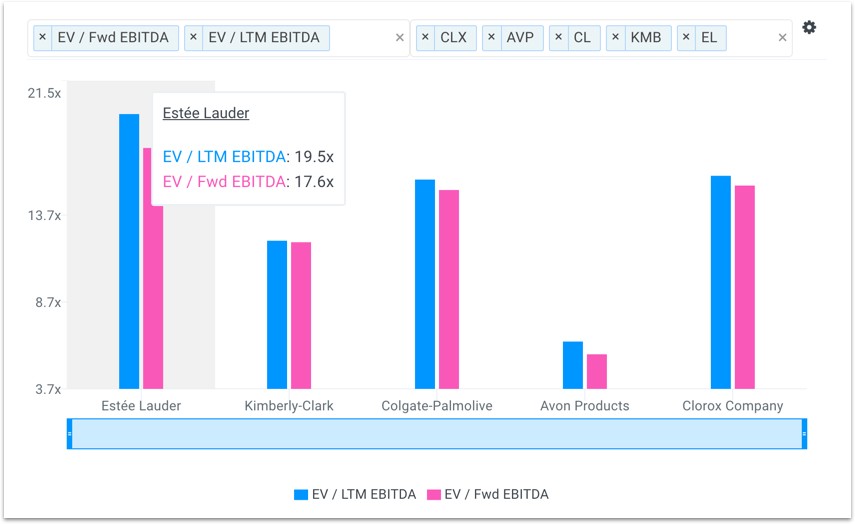
The company’s valuation multiples trade at a premium to its peer group even while its margins and returns are below the majority of this same group. This provides support that shares of Estée Lauder are beginning to become overvalued.
Dividend Yield represents cash returned to shareholders for each dollar invested. Dividend yield plus the change in stock price (capital gain) represents the total return on investment for shareholders.
Estée Lauder’s dividend yield of 1.3% is below all of its peers: KMB (3.2%), CL (2.2%), CLX (2.4%). This also provides support that shares becoming overvalued. Note that AVP does not yet pay a dividend.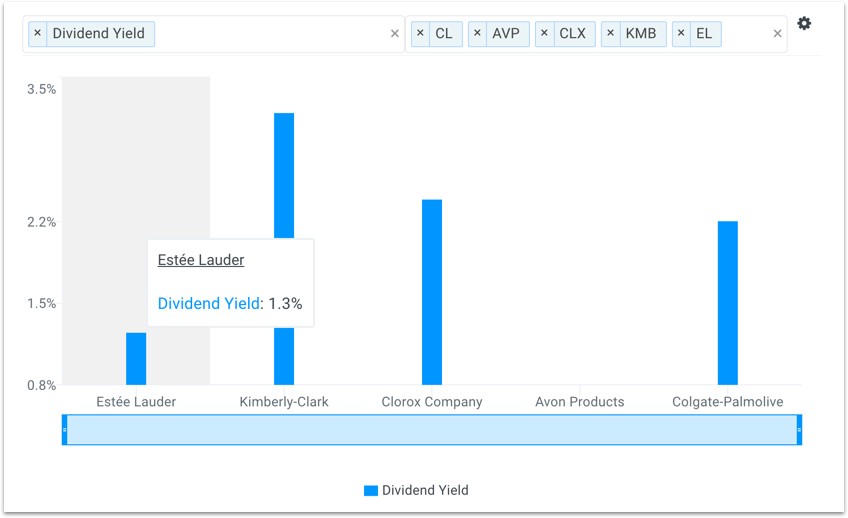
The fundamental charts above indicate that the company’s stock may be trading at a premium and helps explain why insiders have been selling shares. Value investors long Estée Lauder may want to re-evaluate their positions.
